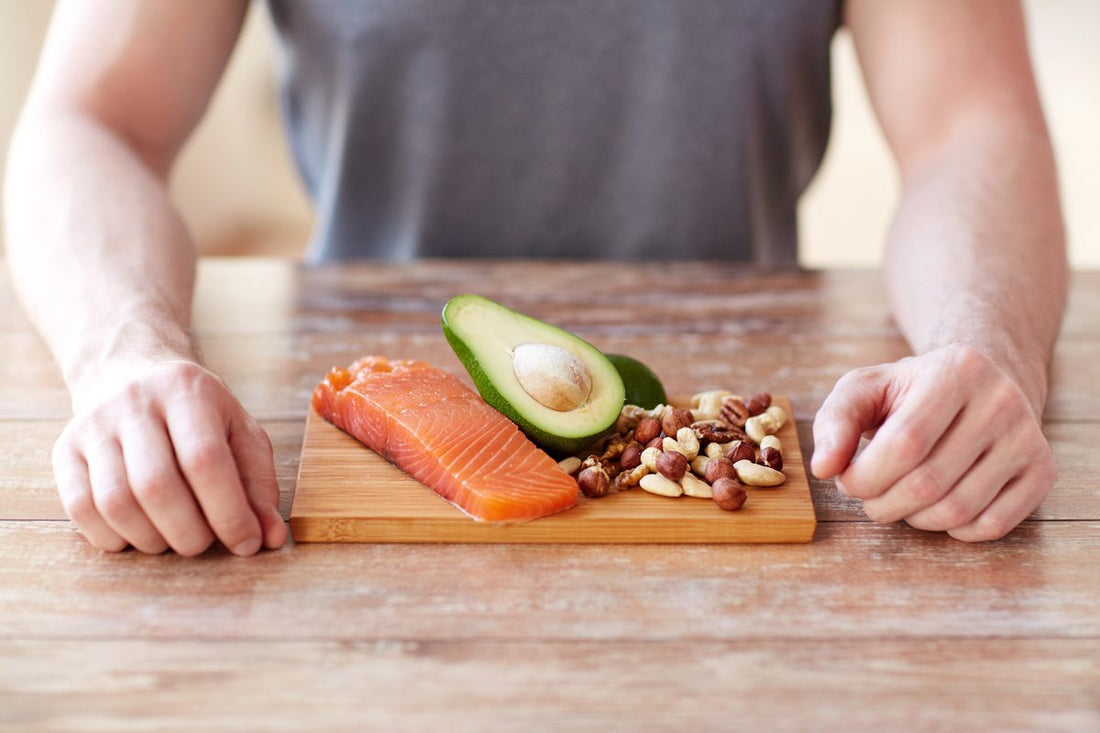All workouts have the ability to destroy and build muscle.
Muscle ache after a workout is a telling sign of exercise-induced muscle damage. Depending on your experience level and intensity of your exercise, muscle breakdown occurs at varying degrees.
Enjoying a walk using muscles that are well trained may result in minimal breakdown and regrowth. Participate in a resistance exercise class at high intensity, and it’s likely you’ll experience much more.
Why It’s Important to Consume Protein When Working Out
Eating meals high in protein before and after your workout is helpful towards aiding muscle recovery in two ways:
- Repair damaged muscle tissue
- Muscle growth
Think of your muscles like an elastic band. They help your body move fluidly and with speed. When an elastic band is overstretched or overused, it begins to fracture and break down. This same effect occurs within the fibrous tissues of your muscles. If left uncared for, significant and irrecoverable damage can happen.
Consuming meals high in protein before and after your workout helps alleviate muscle damage, repair the affected areas, and encourage muscle strengthening. Muscles themselves are a form of protein made up of amino acids.
After consuming a high protein meal, your body breaks down ingested nutrients into its amino acid constituents, which are then absorbed by your body and distributed through your bloodstream to muscle tissue.
How Much Protein Should You Eat When Working Out?
To aid in the repair and rebuilding of muscle tissue, post-exercise consumption is often referred to as the window of opportunity.
Post-workout studies show an optimal effect when consuming 0.3 to 0.5 grams of protein per kg of body weight within three hours of exercise. Experts also advise eating this amount within 45 minutes of exercise may have an even greater effect. If you weigh over 165 pounds, a recommended post-workout meal would contain 22.5 to 37.5 grams of protein.
A minimum baseline of 20 grams protein post workout is a great standard to keep in mind and has shown to maximally stimulate muscle protein re-synthesis.
Best Sources of Post-Workout Protein
Not all protein sources are created equal, and the sources best for post workout recovery are lean, easily digested, and full of essential amino acids. Here are some good examples:
- Eggs – A rich protein source containing all nine essential amino acids. Essential amino acids are different from non-essential amino acids because your body must consume them in order to benefit from them. This is in contrast to non-essential amino acids which your body has the ability to make from alternate food sources.
- Salmon – Just 100 grams of salmon contains the recommended post workout dose of 20 grams of protein. It’s a great addition to a healthy training schedule as its protein content is also accompanied by heart-healthy omega-3s.
- Chicken – With an even greater protein content than salmon, 100 grams of chicken contains an average of 27 grams of protein (ref).
- Greek yogurt – We recommend you stick with greek yogurt because it has twice the amount of protein than the regular kind. According to the USDA. 100g of Greek yogurt supplies you with 10g of protein.
- Camel milk with whey powder – Naturally lower in fat than cow milk, camel milk with a spoonful of protein powder can help supply a quickly digestible post-workout protein boost. Whey powder is considered one of the best proteins for post workout recovery because it’s can be easily absorbed and directly stimulates protein synthesis. Camel milk supplies 3 grams of protein per 100 ml glass.
- Quinoa – Not the most obvious protein source, but quinoa as grain is often much more filling than traditionally turned to proteins. Quinoa is one of the few plant-based protein sources that can be described as a complete protein because it supplies all 9 essential amino acids. One cup of cooked quinoa supplies you 8 grams of protein.

 Log in
Log in
